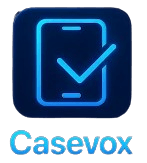
Receivables Management Partners Phone Harassment?
Is Receivables Management Partners (RMP) calling you? Stop Receivables Management Partners phone harassment. Do they threaten to take legal action or garnish your wages? Are they calling you at all hours or several times a day? Are they telling your family and neighbors that you owe a debt? If so what they are doing is illegal and needs to stop. You have the legal right to stop RMP phone harassment. If a collection agency violates the FDCPA, you may be eligible to receive up to $1000.00 in statutory damages, along with covering your attorney fees.
Is Receivables Management Partners LLC a Scam?
According to the Better Business Bureau website, Receivables Management Partners has been in business for 17 years. There have been 41 complaints filed against RMP with the BBB.
Read more here: Receivables Management Partners Better Business Bureau
Who is Receivables Management Partners?
Receivables Management Partners, commonly referred to as RMP, is a third-party debt collector based in Greensburg, Indiana with offices in Michigan, Illinois, Pennsylvania, and Texas. RMP mainly collects medical debts, focusing on revenue cycle management within the healthcare industry. Their service offering has expanded significantly to support their growth strategy. RMP has been a party to a Federal Court case over 35 times. Furthermore, a recent Federal Court case alleges that Acme used illegal and harassing communication tactics to attempt to coerce a payment from the harassed consumer. Starting as a small local company, RMP has grown and scaled its operations to become a significant player in the healthcare collections industry.
Address: PO Box 349 Greensburg, IN 47240 Phone: (254) 772-6111
Receivables Management Partners Collection Tactics
If Receivables Management Partners engages in any of the following tactics, you may have a case:
- Using profanity or abusive language
- Calling you before 8:00 a.m. or after 9:00 p.m.
- Calling you multiple times per week
- Talking to others about your debt
- Calling your workplace
- Threatening to sue you, harm you, or destroy your credit
- Telling you or anyone else that you’ve committed a crime
- Calling repeatedly for the wrong person
- Failing to notify you of your right to dispute the debt
- Trying to collect more than legally allowed
Receivables Management Partners Phone Numbers
Are you receiving any harassing phone calls from any of the following numbers?
| Phone Number |
|---|
| 254-772-6111 |
| 800-299-0045 |
| 254-761-2537 |
| 855-831-3426 |
| 800-653-2851 |
If the answer is yes, then you are receiving calls from a known RMP number. You may be a victim of RMP phone harassment. The list above is not all the numbers that RMP uses. The calls can be from different phone numbers and it still be Receivables Management Partners calling you. Contact our office right away so we can start the process to stop RMP from calling you illegally. Above all, no one should live with harassment!

What to Do When Receivables Management Partners LLC Contacts You
Dealing with repeated or aggressive calls from Receivables Management Partners LLC (RMP) can be stressful and overwhelming. Knowing your rights and taking the right steps can protect your credit, your peace of mind, and prevent illegal harassment. Here’s what you should do:
Stay Calm and Document Everything
Keep a record of every call, including dates, times, phone numbers, and the content of the conversation.
Save voicemails, emails, and letters you receive from RMP.
Documentation can be vital if you need to dispute the debt or take legal action.
Verify the Debt
Under the Fair Debt Collection Practices Act (FDCPA), you have the right to request a written validation of the debt.
Ask RMP for proof that the debt is yours, the amount is correct, and the creditor authorized collection.
Do not make any payments until the debt is validated.
Know What Counts as Harassment
RMP may not legally:
Call repeatedly to annoy, intimidate, or harass you.
Contact you before 8 a.m. or after 9 p.m. without permission.
Discuss your debt with family members, coworkers, or your employer, except to obtain contact information.
Threaten arrest, lawsuits, or wage garnishment without legal authority.
If RMP crosses these lines, it may violate federal or state debt collection laws.
Send a Cease-and-Desist Letter
You can send RMP a cease and desist letter to stop contacting you.
After receiving your letter, they may only contact you to confirm receipt or notify you of legal action.
Keep a copy of the letter and proof of delivery.
Dispute Inaccurate Debts
If the debt is incorrect, outdated, or not yours, send a written dispute to RMP and copy the credit bureaus.
Request that RMP cease collection until the debt is validated.
Disputing inaccurate debts protects your credit score and ensures debt collectors follow the law.
Monitor Your Credit Report
Regularly check your credit report for new collection accounts or errors.
You are entitled to one free report per year from each of the three major credit bureaus via Annual Credit Report.
Dispute any inaccuracies immediately to prevent long-term damage to your credit score.
Complaints Against Receivables Management Partners
The following is a sample list of complaints filed against Receivables Management Partners in the past year and can be found on Pacer.gov.
| Case Number | Case Name |
|---|---|
| 3:18-cv-01859-L | Shivam v. Receivables Management Partners LLC |
| 8:18-cv-01477-VMC-JSS | Lockwood v. Receivables Management Partners, LLC |
| 1:19-cv-00531 | McFerren v. Receivables Management Partners, LLC |
| 1:17-cv-09067 | Rhoads v. Receivables Management Partners, LLC |
| 1:18-cv-01921 | McCoy v. Receivables Management Partners, LLC |
Report Violations
If RMP violates the FDCPA or other laws:
File a complaint with the (CFPB).
Report to your state Attorney General.
Submit a complaint to the Federal Trade Commission (FTC).
These agencies monitor debt collector behavior and can investigate harassment. If harassment continues or your rights are violated, contact Consumer Rights Law Firm PLLC. We can help you stop illegal calls, dispute debts, and recover damages for violations. Legal guidance is especially helpful if you face false threats of lawsuits or wage garnishment.

Consumer Rights Law Firm PLLC
Consumer Rights Law Firm PLLC is a law firm that specializes in helping clients who are facing harassment from debt collectors in any form, including telephone communication. Rather than suffer alone, contact our office to begin the process to stop the Receivables Management Partners harassment. Our office has been assisting consumers since 2010. We have an A+ rating with the Better Business Bureau.
If you are interested in learning more about how to safeguard yourself and prevent harassment from Receivables Management Partners call us at 877-700-5790 for immediate assistance or visit our website.
Success Stories
- Amazing working with Matt G. He handled my case quickly and with ease. I got my debt and attorney fees taken care of and off my report. Matt was great at communicating and always made me feel heard. Couldn’t recommend him more!
- Matthew was kind and understanding. He gave excellent service! I highly recommend Matthew and the whole firm to anyone! They settled my claim fast and efficiently to my highest satisfaction!
- Matthew was so helpful. This company was amazing. We were being hassled up to 10 times a day for a bill that was less than $1000. The person who had our account was nasty and EXTREMELY unprofessional. I sought out help from Consumer Rights Law Firm and within 45 days we had relief. So grateful to Matt for his help and professionalism. He kept us informed with every step and fulfilled everything that he said. Very grateful. Thank you
Frequently Asked Questions
Who is Receivables Management Partners LLC and why are they contacting me?
They are a third-party debt collection agency that contacts consumers regarding unpaid debts on behalf of creditors.
Is Receivables Management Partners LLC a legitimate company or a scam?
RMP is a legitimate collection agency, registered and operating under federal and state laws, though some consumers report aggressive collection tactics.
What counts as harassment from Receivables Management Partners LLC?
Repeated calls, threatening language, calls outside permitted hours, or contacting your employer/family could all be considered harassment under the FDCPA.
How many times can Receivables Management Partners LLC legally call me?
There is no fixed universal number, but repeated calls intended to annoy, intimidate, or harass can violate federal and state laws.
Can I dispute a debt claimed by Receivables Management Partners LLC?
Yes. Under the Fair Debt Collection Practices Act, you have the right to request written validation of any debt within 30 days of first contact.
Can Receivables Management Partners LLC report debts to credit bureaus?
Yes. If the debt is valid, it can appear on your credit report and affect your score, but you can dispute inaccurate or unauthorized reporting.
Are there rules about when RMP can call me?
Debt collectors may not call before 8 a.m. or after 9 p.m. unless you consent. Calls outside these hours can be considered harassment.
Can RMP contact my employer, coworkers, or family about my debt?
Generally no, except to confirm your contact information. Discussing your debt with third parties violates the FDCPA.
Can I make RMP stop calling me completely?
Yes. Sending a written cease-and-desist notice requires them to stop contacting you except to inform you of legal action or confirm they will stop.
Can I take legal action if RMP violates my rights?
Yes. If RMP engages in unlawful practices like harassment, false threats, or reporting inaccurate debts, you may sue for damages, attorney fees, and statutory penalties.







